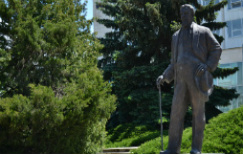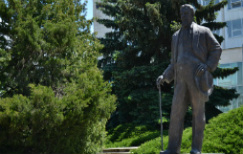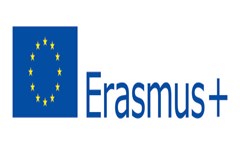Student and Staff Mobility Division
ERASMUS (European Community Action Scheme for the Mobility of University Students) is a program of the European Union in the field of higher education, established in 1987. Initially it was part of the "Socrates" program, and since 2007 it has been a major part of the new integrated LLP - Lifelong Learning Programme. Since 2014, the program has grown into the integrated Erasmus+ program and brought together the majority of activities that were part of the LLP.
Universities from a total of 35 countries participate in the ERASMUS program - all 28 member states of the European Union, the countries of the European Free Trade Association (Iceland, Liechtenstein, Norway and Switzerland) as well as Turkiye, Republic of Serbia and Republic of North Macedonia.
The program offers opportunities for individual mobility of students, doctoral students, teachers and administrative staff of HEIs to participate in the educational process in universities of the EU countries.
The University of National and World Economy (UNWE) joined the Erasmus program in 1999-2000 academic year - the first year in which participation in the program was permitted for Bulgaria.
The participation of UNWE in students’ and teachers’ exchange is based on the ERASMUS University Charter granted by the European Commission after a special selection procedure.
In 2021 UNWE was granted an ERASMUS+ CHARTER FOR HIGHER EDUCATION for the new period frame of the program – 2021-2027.
In its implementation of the Erasmus+ Program UNWE abides by the rules and commitments in its ERASMUS POLICY STATEMENT.


